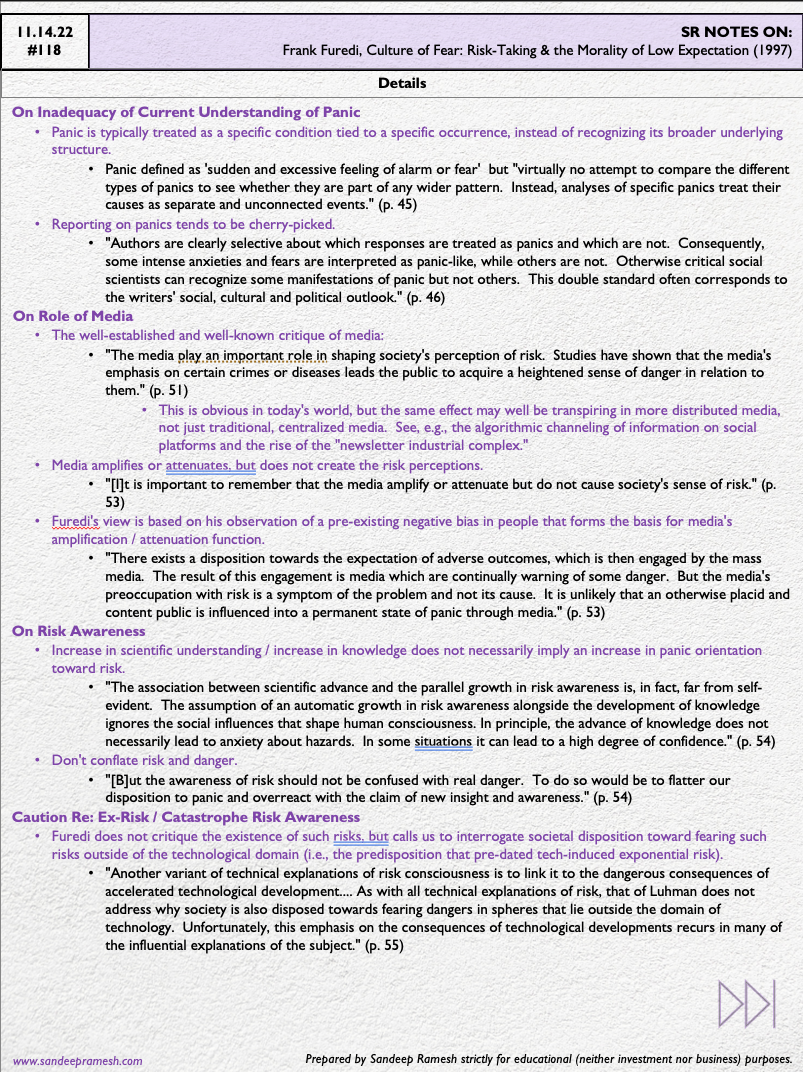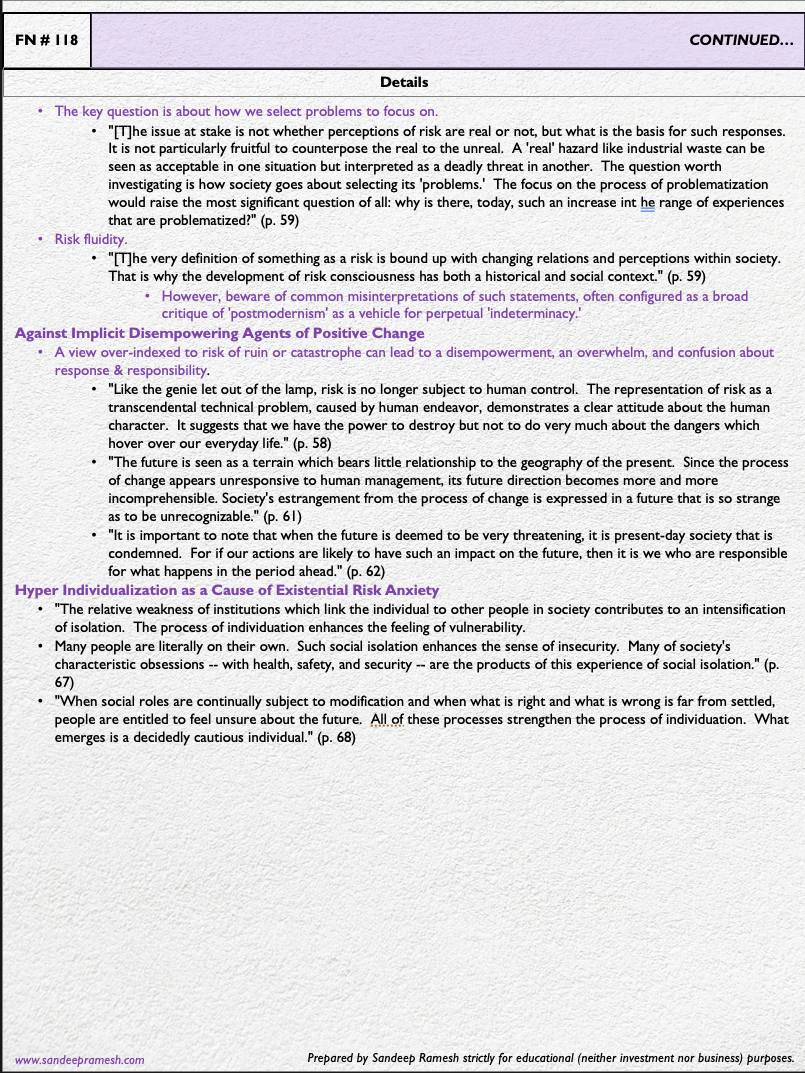Source: Frank Furedi, Culture of Fear: Risk-Taking & the Morality of Low Expectation (1997)
The Context.
As Field Note #117: On "Decision Integrity + Impoverished (Investor) Subject" most recently explored, the hyperturbulence of our times is not merely theoretical; it has become deeply felt. The valence of this feeling might be characterized as "panic," the topic of Frank Furedi's chapter titled "Why Do We Panic?" that is found in his 1997 text, Culture of Fear.
One of Furedi's insights is that the increased isolation of the individual has led to a "system wide" predisposition toward panic. "Risk Society" theorist, Ulrich Beck, referred to a process of individualization whereby "the flexibilization of the labor market, the decline in manufacturing and heavy industry, educational differentiation and changing patterns of consumption have dissolved the bonds of collective experience, leading to atomized forms of existing." (Mythen, A Critical Introduction to Risk Society (2004), p. 28).
Furedi develops this notion of individualization by questioning the conditions to give rise to a predisposition toward panic instead of focusing on specific, localized panics. It's not just panic at the crypto, but panic as such, that ought to be interrogated.
Further, the individualization process that enables panic prone attitudes has a tendency to lead to cynicism, a danger I confronted (and continue to confront) in Field Note #92: On "Cynicism Pathology." Furedi observes:
"The coincidence of the process of individuation with a mood of social pessimism helps to produce a sense of cynicism regarding the merit of social engagement. This lack of belief in the problem-solving ability of human beings helps to heighten the sense of vulnerability. It is this convergence of insecurity with the sense that we have run out of answers that makes society feel that it is entitled to panic." (p. 70)
And, dovetailing the notion of response & responsibility in Field Note #105: On "Tech: In Medias Res," Furedi continues:
"The separation of responsibility and accountability from action -- at least in an inchoate form -- is the most destructive accomplishment of the creation of the diminished subject." (p. 65, emphasis added)
What are we going to do about this?
The Details.

